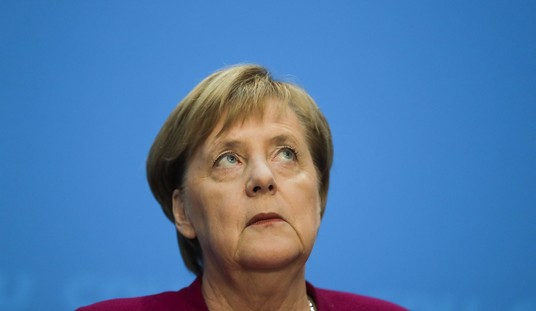Via Twitchy, this is like being down 28-0 at halftime of the Super Bowl and having your QB tell a reporter that baseball’s actually his best sport.
My definition of leadership is maximizing your side’s advantage by making smart executive decisions in a high-risk atmosphere. Who’s done a better job of that lately in Syria? Obama notes that Putin’s only involved now because his previous strategy, of supplying Assad and his Iranian patrons and hoping they’d succeed on the battlefield, didn’t work. But our strategy, to the extent that we’ve ever had anything one might reasonably call a “strategy” in Syria, hasn’t worked either. We’ve supplied some of the Sunni rebels with weapons but they haven’t managed to overcome the Assad/Hezbollah/Iran/Russia axis. We tried to train our own rebel army before the project ended in total humiliation, with the White House whining that they never wanted to do it in the first place. When Putin’s strategy didn’t work, he adapted by agreeing to put Russian military assets in the field to turn the tide of war towards Assad — and that strategy is working. When Obama’s strategy didn’t work, he … made a concession to the other side, mollifying Iran and Russia by agreeing that there’s no rush for Assad to leave so long as he agrees to leave at some point as part of an eventual political settlement. Putin changed the facts on the ground to maximize his leverage at the bargaining table. Obama reacted to those changed facts by trying to accommodate him. Which sounds more like leadership?
Meanwhile, I’m amazed he had the stones to cite the Iran nuclear deal as proof of his own leadership with this story breaking in the Times this weekend:
Iran tested a new guided long-range ballistic missile on Sunday, hours before Parliament, in a rowdy session, approved the generalities of the nuclear agreement reached in July between Iran and world powers, the state news agency IRNA reported.
The missile launch may have violated the terms of the agreement, reached in Vienna with six world powers. According to some readings of the deal, it placed restrictions on Iran’s ambitious missile program.
Experts have been debating the interpretation of a United Nations Security Council resolution, adopted a few days after the accord was agreed upon, that bars Iran from developing missiles “designed to carry nuclear warheads.”
The White House will argue, of course, that the missile launch doesn’t violate the deal — not because it’s convinced that that’s true but because protecting Obama’s big diplomatic “achievement” obligates them to look the other way at any Iranian violation unless it’s indisputable. Returning to our definition of “leadership,” does that sound like leadership to you? One side is testing weapons arguably banned by the new treaty, secure in the belief that the other side will make a de facto concession by not holding it against them. The other side does in fact make that concession. Which one has made a smart but risky decision to maximize its own advantage?







Join the conversation as a VIP Member